
If you've spent time casually browsing the supplement aisle at your local health food store, you've likely come across creatine.
This powerful supplement has been a staple in the supplement industry for years, thanks to its proven ability to support muscle growth and enhance athletic performance.
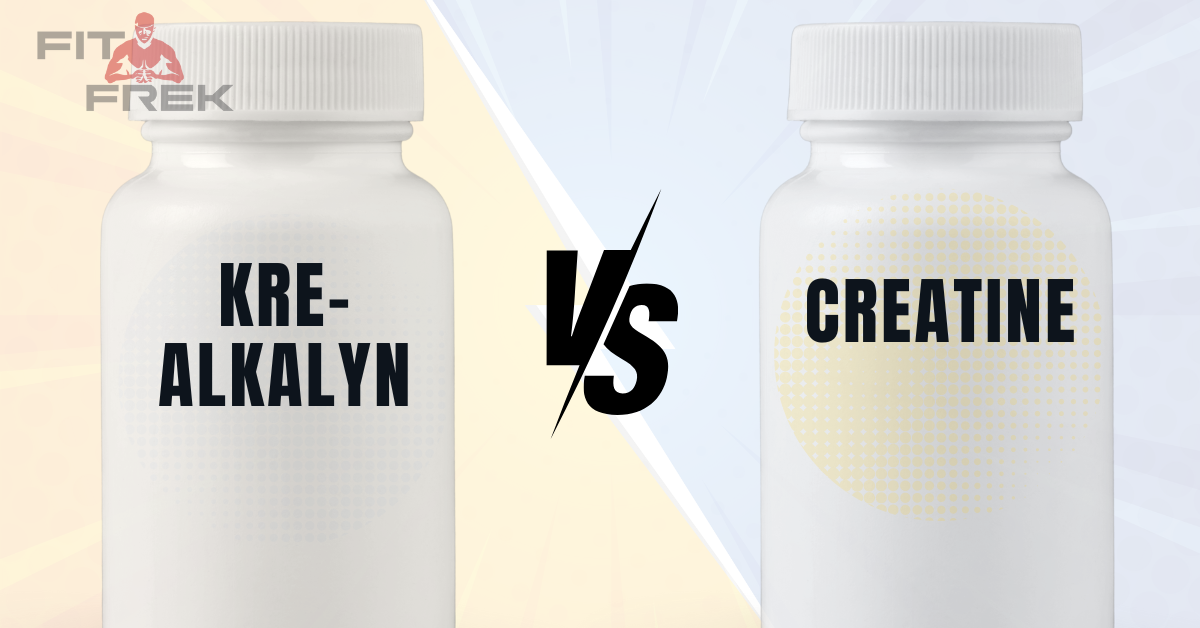
However, not all creatine is created equal.
Today, we're diving into the world of creatine to compare two forms: Creatine Monohydrate and Kre-Alkalyn.
Creatine Monohydrate and Kre-Alkalyn are two popular forms of creatine in the fitness industry.
While Creatine Monohydrate is backed by extensive research and is known for its effectiveness in enhancing strength, power, and muscle mass, Kre-Alkalyn, a buffered form of creatine, offers superior absorption and stability with fewer side effects.
Creatine is a naturally occurring compound that our bodies produce and use to release energy during high-intensity activities like weightlifting or sprinting.
It's also found in certain foods, like red meat and fish.
However, the amounts we get from diet and natural production are often insufficient to maximize its performance-enhancing benefits, which is where supplementation comes in.
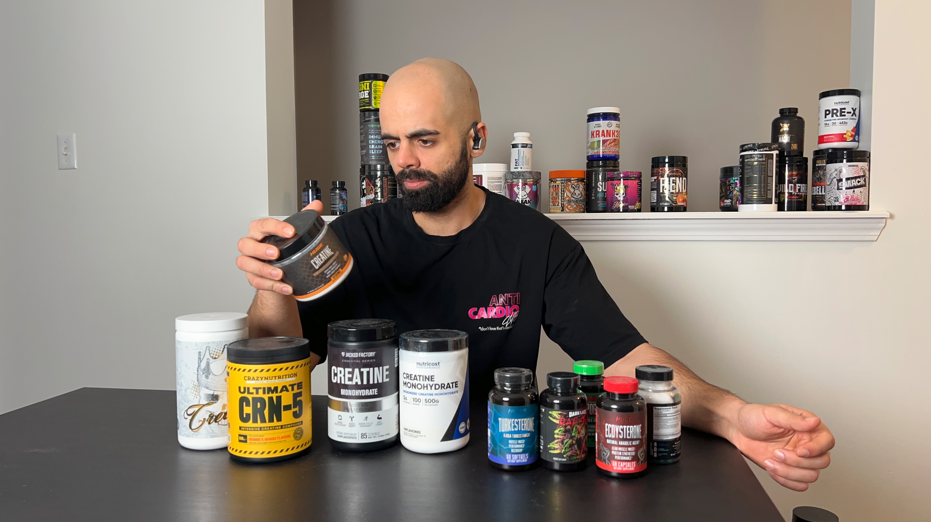
Several forms of creatine are available on the market, but we will focus on two forms: Creatine Monohydrate and Kre-Alkalyn.
Creatine Monohydrate is the most researched form of creatine and is widely regarded as the gold standard.
It's been shown to effectively increase muscle creatine stores, improving muscle power and performance.
One study found that creatine supplementation significantly improved weightlifting performance and increased muscle mass during training.
Kre-Alkalyn is a buffered form of creatine with a higher pH than traditional creatine monohydrate.
The idea is that this higher pH level allows for better absorption and utilization by the body, reducing the potential for side effects like bloating and cramping that some people experience with creatine monohydrate.
However, it's worth noting that while some users swear by Kre-Alkalyn, the research is not as robust as it is for creatine monohydrate.
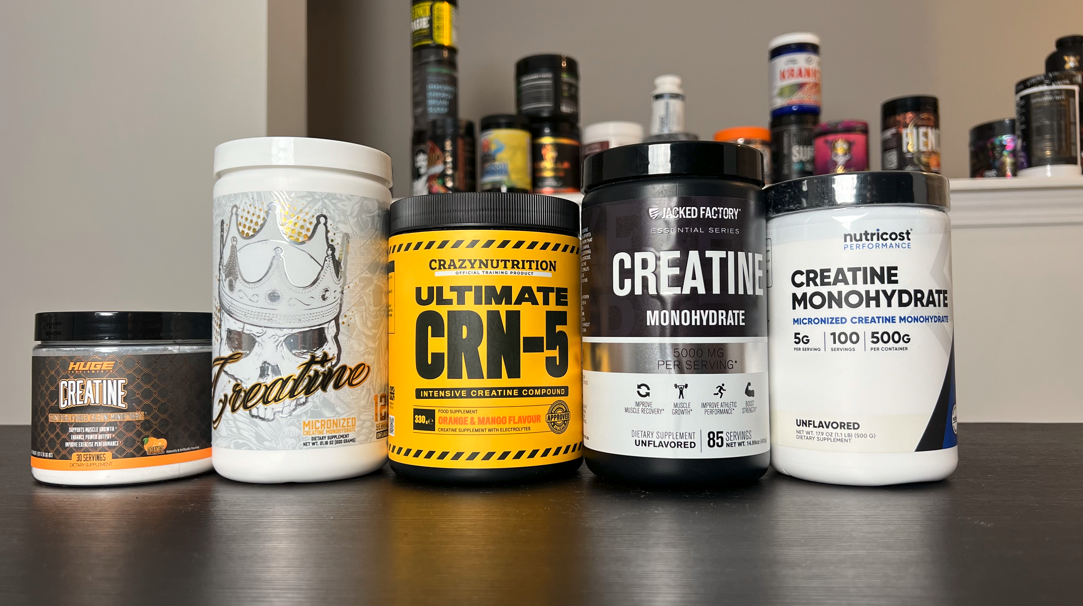
Creatine HCL is a newer form of creatine bonded with hydrochloride to enhance solubility.
This means it dissolves more easily in water and is potentially absorbed more efficiently by the body.
Some research suggests this could allow for lower doses and fewer side effects, but more studies are needed to fully understand its benefits and how it compares to other forms of creatine.
While all three forms of creatine can support muscle growth and athletic performance, there are some key differences to consider.
Creatine Monohydrate has the most research backing its effectiveness, but some people find it causes bloating or other digestive issues.
Kre-Alkalyn offers a buffered form that may reduce these side effects, but it's generally more expensive and doesn't have as much research support.
Creatine HCL is highly soluble and may be more easily absorbed, but more research is needed to confirm these benefits.
Creatine Monohydrate is one of the fitness industry's most researched and widely used supplements.
It's a naturally occurring compound that our bodies produce and is also found in foods like red meat and fish.
But why is it so popular among athletes and fitness enthusiasts?
The science behind Creatine Monohydrate is quite robust. Here are some key findings from various studies:

Kre-Alkalyn is a patented form of creatine that claims to have superior benefits over traditional creatine monohydrate. It's designed to have a higher pH level, which is said to help the body absorb and utilize it more effectively. But does the science support these claims?
Here are some key findings from various studies:
While Creatine Monohydrate and Kre-Alkalyn have unique benefits, the choice will depend on individual preferences, goals, and how one's body responds to each supplement.
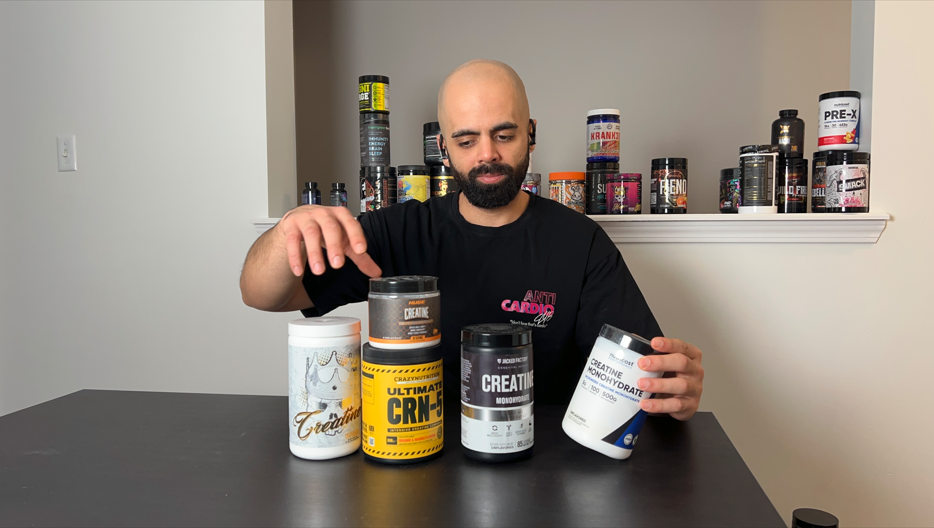
When it comes to scientific backing, Creatine Monohydrate takes the lead.
It has been the subject of numerous studies, investigating its effects on muscle strength, power, and size.
The research consistently shows that Creatine Monohydrate can enhance anaerobic exercise capacity and increase training volume, leading to greater gains in strength, power, and muscle mass.
On the other hand, Kre-Alkalyn is a patented form of creatine that claims to offer superior benefits.
However, the scientific evidence supporting these claims is not as extensive as that for Creatine Monohydrate.
A study found that Kre-Alkalyn did not promote greater changes in muscle creatine content, body composition, or training adaptations than Creatine Monohydrate.
Like any supplement, creatine can potentially cause side effects, although these are generally mild and not experienced by everyone. Some of the commonly reported side effects include:
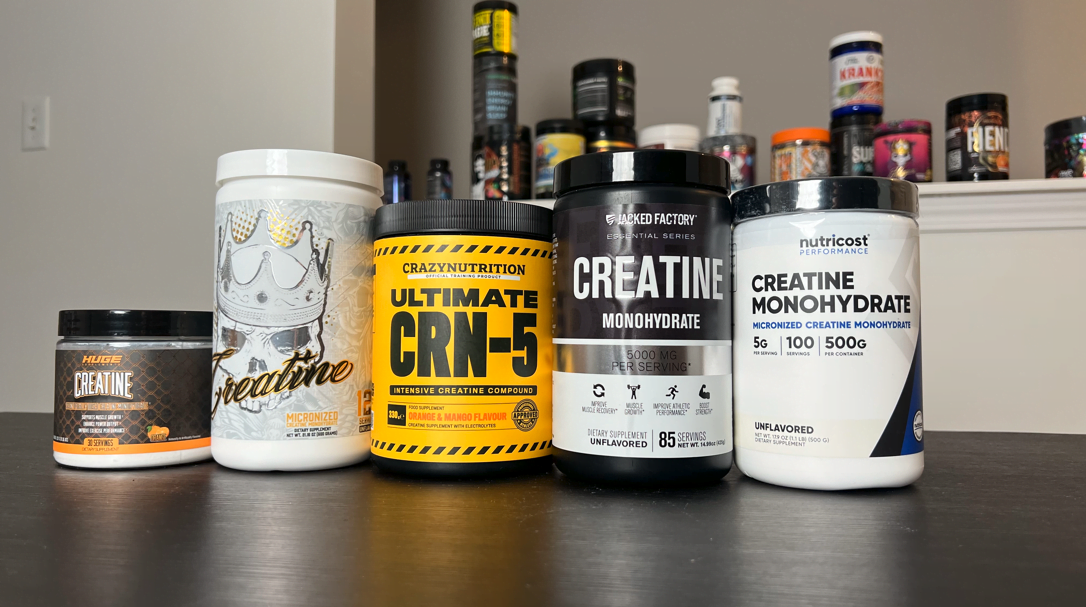
It's important to note that these side effects are typically associated with taking too much creatine at once.
To minimize the risk of side effects, following the dosing instructions on the product label or consulting with a healthcare provider is recommended.
In rare cases, creatine supplementation has been linked to kidney damage, particularly in individuals with pre-existing kidney conditions or those taking high doses for extended periods.
However, the research indicates that creatine supplementation is safe when used responsibly by healthy individuals.
Like any supplement, creatine can cause side effects in some people.
These can include bloating, stomach discomfort, and water retention.
However, these side effects are generally mild and can often be managed by adjusting the dosage or switching to a different form of creatine.
As always, talking to your doctor before starting any new supplement regimen is important.
Your best form of creatine depends on your needs and goals.
If you want a well-researched, cost-effective option, creatine monohydrate is great.
If you've had issues with bloating or stomach discomfort from creatine monohydrate, you might want to try Kre-Alkalyn or Creatine HCL.
As always, listening to your body and adjusting your regimen as needed is important.

Here, we'll answer some common questions about the different forms of creatine.
What is the most effective form of creatine?
While all forms of creatine can be effective, creatine monohydrate has the most research supporting its use.
Can I take creatine if I'm trying to lose weight?
Yes, creatine can be beneficial for weight loss as it can help maintain muscle mass while you're in a calorie deficit.
Does creatine cause water retention?
Creatine can cause water to be drawn into your muscles, leading to weight gain from increased water weight. However, this is typically minimal and temporary.
Whether you choose Creatine Monohydrate, Kre-Alkalyn, or Creatine HCL, creatine is a powerful supplement supporting your fitness goals.
By understanding the differences between these forms, you can choose the one right for you and get the most out of your workouts.
As always, talking to your doctor before starting any new supplement regimen is important.
Useful Links
 About FitFrek
About FitFrekFitFrek operates as an independent platform, offering comprehensive workouts, programs, routines, guides, and unbiased reviews to accelerate your progress. We pride ourselves on our honesty, delivering straightforward and candid insights. FitFrek does not offer medical advice, diagnosis, or treatment services.